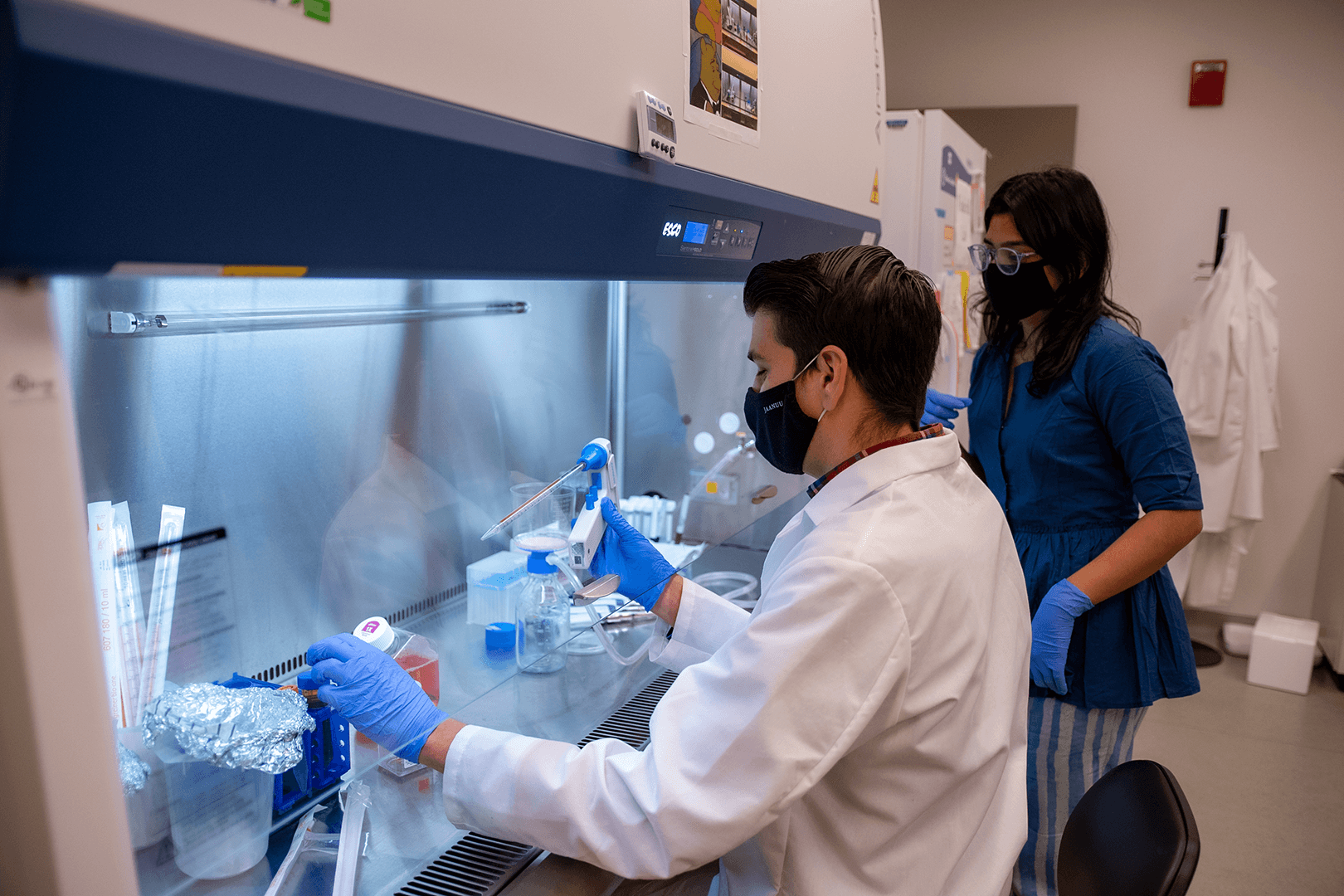
Just as our daily lives have been transformed by technology, there now exists a remarkable opportunity to engineer transformative advances against cancer.
This vision drives the Cancer Center at Illinois.
The Cancer Center at Illinois is a research institute – fostering basic science and engineering innovations to spur scientific discovery into the nature of cancer. Our scientists develop interventions that help clinicians across the world to prevent, diagnose, and treat cancer.
Research Programs
Cancer Center at Illinois Research Programs were designed to cut across interdisciplinary silos with a goal to develop practical, next-generation advances in biological discovery, cancer detection, and diagnosis. The expertise and collaborative efforts of our scientists enable the faster development of more effective diagnostics and therapies.
Cancer Measurement Technology
and Data Science
Cancer Discovery Platforms Bridging the Engineering-Biology Continuum
Cancer Center at
Illinois Scientists
Grant Funding Opportunities
Tumor Engineering and Phenotyping Shared Resource
The Tumor Engineering and Phenotyping (TEP) Shared Resource provides access to specialized technologies, cancer models, services, and expertise that enhance scientific progress and research collaborations.
Support Cancer Center at Illinois research
Contribute to the next major cancer research breakthrough.
Donor support enables transformative research. It allows our imaging technology experts to provide doctors and patients with more efficient and visible cancer assessments. It offers our modeling teams the chance to dive deeply into the complex world of tissue and tumor microenvironments to better understand how to mitigate and treat cancer. It aids our scientists in creating individualized treatment plans for patients, improving cancer survival rates.
